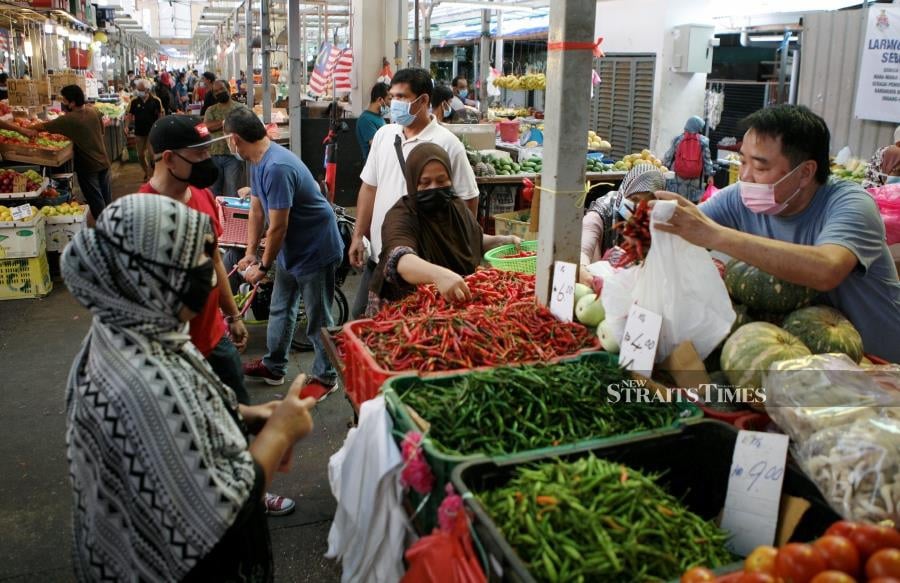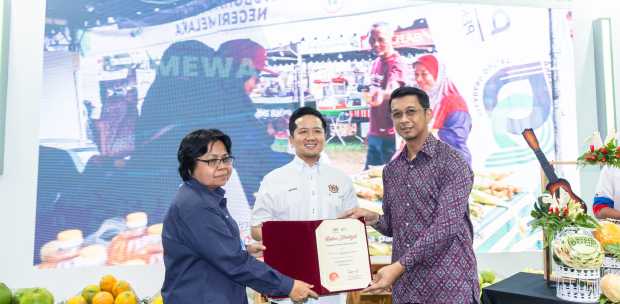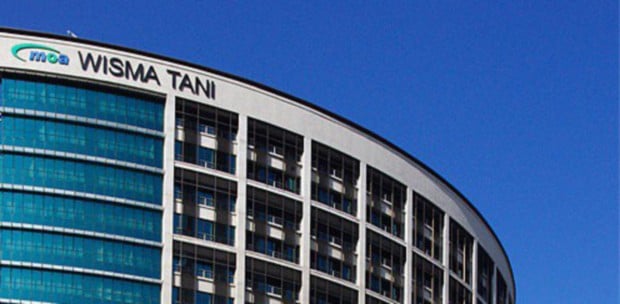FOOD is one of our basic necessities. Good and healthy food nourishes the human body and helps sustain human life.
Whenever humanitarian crises such as wars, natural disasters or pandemics occur, the issue of food security will become critical.
This could justify why the Food and Agriculture Organisation of the United Nations (FOA) — a specialised agency of the United Nations that leads international efforts to defeat hunger — views that access to an adequate, good and healthy food is not only a basic human need, but also one of human rights.
According to FOA, a state of food security exists when all people, at all times, have physical, social and economic access to sufficient, safe and nutritious food which meets their dietary needs and food preferences for an active and healthy life. In the absence of any of the criteria outlined by the FOA in its food security definition, man is said to be in food crisis.
Arguably, at the country level, food is abundant in Malaysia. According to SWCorp Malaysia (Solid Waste and Public Cleansing Management Corporation), about 16,667.5 tonnes of food waste are generated in Malaysia daily.
Out of this figure, 24 per cent or 4,005 tonnes of food waste are classified as still edible, with the quantity sufficient to provide three meals to 2,970,000 people for a day.
Even during a pandemic such as the one we are experiencing at present, some Malaysians cope with the Movement Control Order (MCO) by trying new recipes and sharing food photos on the social media.
Many of us could still remember when the government imposed the first MCO in March 2020, people rushed to grocery stores and supermarkets to stock up on food and necessities.
The same could be observed in MCO 2.0 and 3.0. Unfortunately, some ended up in the garbage bin. Perhaps one of the examples of food waste that irked netizens during the MCO 1.0 is the photo of unopened packages of bread thrown at the dump site. Perhaps all these are evidences that food security in not an issue of concern for some in Malaysia.
Nevertheless, it is not a general rule that a food abundant country is also a food secure country. If we follow strictly the definition of food security by the UN, we could say that the state of food security does not exist in Malaysia as it requires all people to have access to sufficient, safe and nutritious food at all times.
The aspects of food availability, food access, food utilisation and food stability construed from the definition of food security remain elusive and unlikely to be achievable in practice.
For one thing, Malaysia has not yet reached the level of self-sufficiency for basic food. As reported in the Agrofood Statistics 2019 of the Ministry of Agriculture and Food Industries (MAFI), Malaysia's self-sufficiency level of major food commodities for 2019 such as rice, vegetables, fruits, beef and liquid milk stood at 63 per cent, 44.4 per cent, 78.2 per cent, 22.3 per cent and 63 per cent respectively.
Only poultry meat, poultry eggs, food fish and pork were reported to achieve above 90 per cent self-sufficiency level. In order to fill the gap between domestic supply and domestic consumption, Malaysia heavily relies on imports for food produce.
The total imports of foodstuff in 2019 amounted to RM51.4 billion as compared to RM50.14 billion in 2018. As a matter of fact, the figure of Malaysia's import for agro-food has been on a steady upward trend from year to year. In simple terms, Malaysia does not produce enough food for its population.
Second, the incidence of malnutrition is still an issue of concern among children in Malaysia. According to the Global Nutrition Report, in 2016 about 20.7 per cent of Malaysian children under five years are stunted — an increase from 17.2 per cent in 2006.
Studies conducted by Unicef on low-income urban households and children in 2018 showed that more than 1 in 10 children have less than three meals a day and 97 per cent of households admitted that high food prices prevented them from preparing healthy meals for their children.
As the world is facing the unprecedented Covid-19 pandemic and Malaysia is not spared as many have lost their jobs.
While the pandemic has triggered one of the worst job crises since the Great Depression — as declared by the Organisation for Economic Co-operation and Development (OECD) — in Malaysia, more than 600,000 households from the M40 category have slipped into the B40 category due to the Covid-19 crisis.
If the 600,000 of the M40 could fall into B40, one would wonder what would have happened to the B40 income group. It is simply untenable to say that the crisis did not pose any setback on their income level.
The risk of food security and chronic malnutrition especially on the most vulnerable population is therefore inevitable as the impact of unemployment is translated into poverty and widened inequalities.
Although we can rely on exporting nations for our staples, this does not mean that we should not do anything to reduce our dependency on others for food security. The agriculture sector is prone to many risks arising from adverse weather, market risks and the risk from animal diseases.
When the supply from the exporting nations is disrupted, the most basic economic problem, that is, scarcity will emerge in the importing country. Then the issue of affordability will come into the fray.
Lack of supply or scarcity which is accompanied by high demand or even normal demand level will entail price hikes and pose a great danger to those in the lower income bracket. The situation could aggravate if a country is in crisis due to pandemic or health emergency.
Perhaps, some divine principles which apply to all times deduced from verses 46 to 49 of Surah Yusuf in the holy Quran should serve us as a guidance in overcoming the prevalence of food security or insecurity.
The verses are as follows:
[He said], "Joseph, O man of truth, explain to us about seven fat cows eaten by seven [that were] lean, and seven green spikes [of grain] and others [that were] dry - that I may return to the people [i.e., the king and his court]; perhaps they will know [about you] (46)."
[Joseph] said, "You will plant for seven years consecutively; and what you harvest leave in its spikes, except a little from which you will eat (47). Then will come after that seven difficult [years] which will consume what you advanced [i.e., saved] for them, except a little from which you will store (48). Then will come after that a year in which the people will be given rain and in which they will press [olives and grapes] (49)."
There are four core principles encapsulated in the surah. The first principle is to plan and produce sufficient food for sustenance. Secondly, to consume in moderation. Thirdly, to preserve food for later use or for hard times. Lastly, to share the food with the needy.
Indeed, the four principles have not only proven to save ancient Egypt to successfully endure famine crisis due to a long drought, but also enabled the kingdom to assist with food supply to neighbouring countries.
Malaysia can benefit from emulating this applied experience of ancient Egypt. What we can do now is to minimise the risk of food insecurity by having a consistent strategy on agriculture policy whereby the government — regardless of political changes in the country — should always be committed to establishing food self-reliance.
The strategy will not only increase the availability of locally-produced food products, but also create economic and social impact in terms of food affordability — which is the key component of food security.
We hope the adoption of the National Food Security Policy Action (DSMN) for 2021–2025 at the Cabinet Committee Meeting on National Food Security Policy in June 2021 could open a new approach on how Malaysia can achieve or improve food security in the country.
Nevertheless, the government should not work alone in such an endeavour. Malaysians should change their attitude toward food waste.
They should think of environmental, economic and social impact of food waste. At the same time, food sharing should also be part of our moral obligation.
This will ensure every individual in our society especially the needy and those under privileged group are guaranteed their basic right to food needed for a healthy life.
The writer is Fellow, Centre for Economics and Social Studies Institute of Islamic Understanding Malaysia (IKIM)






